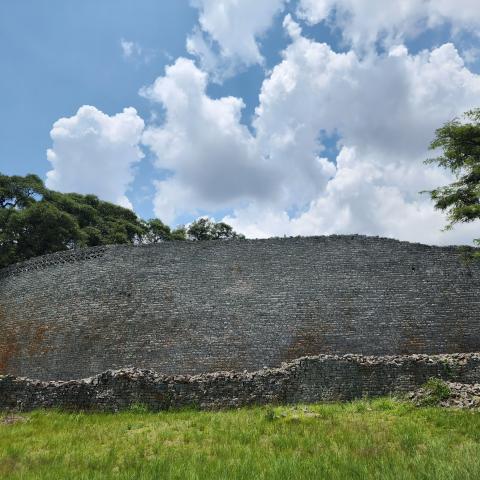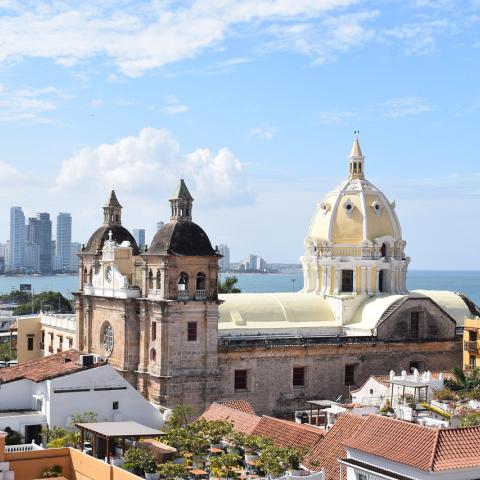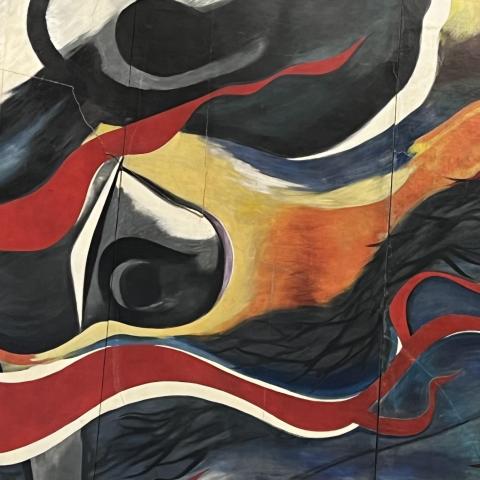Within AGI, area studies and thematic academic units such as the Africa Initiative; Center for the Global Study of Race, Inequality and Justice; East Asia Center; Latin America and Iberian Studies Program; and Center for Middle Eastern Studies interface with the Orfalea Center for Global and International Studies.

Africa Initiative
The UCSB Africa Initiative is a new intellectual and cultural space and programming initiative that emerged in response to the growing need for African voices and self-representation at UCSB and the Santa Barbara community. It is a dare--a participative knowledge commons that brings together faculty, students, community members, visiting scholars, artists and others to think, learn, teach and co-produce knowledge on, with and about Africa in new, robust ways that center African people, their ideas, and voices without merely reducing the continent and its knowledge systems into objects of study and intellection. The Center's practices are informed by the ethos of African self-liberation. Its programming is necessarily interdisciplinary, seeking to bridge divides not only between the humanities, social sciences and the hard sciences, but also the continent and its diasporas as well as theory and practice. In this regard, it actively works with affiliate organizations, such as the UCSB Uhuru Gardens Collective, an African students' grouping that addresses food and culinary impoverishment among African and African-descended students and families. (photo credit: Mhoze Chikowero)

Center for Latin American and Iberian Research
The Center for Latin American and Iberian Research (CLAIR) is devoted to enriching the academic study of Latin America and Iberia at the University of California, Santa Barbara. CLAIR supports graduate and faculty research related to the histories, languages, literatures, and cultures of the peoples of Latin America and Iberia, from antiquity to the present day, and of their diasporas in Africa, Asia, and the Americas, including the Latino/a communities of the United States. CLAIR draws on UCSB's extraordinary breadth and depth of faculty and student expertise in these areas to promote interdisciplinary research, scholarly development, and cultural events across departmental, disciplinary, and divisional boundaries. CLAIR sponsors and organizes events such as lectures, workshops, film screenings, and performances; provides funding to graduate students for innovative research; and fosters research collaborations between students, faculty, and other scholars at UCSB. In this mission, CLAIR complements the curricular work of the Latin American and Iberian Studies Program, which is devoted to providing UCSB students with rich, interdisciplinary training at undergraduate and graduate levels.

Center for Middle East Studies
Founded in 2000, the Center for Middle East Studies (CMES) promotes the study of the Middle East, North Africa, and Islam at the University of California, Santa Barbara. CMES has long been a bastion of interdisciplinary scholarship, collectivity, and exchange. The last decade has witnessed a flourishing of CMES faculty and graduate students at UCSB across disciplines (Humanities, Social Sciences, and Sciences) and methodology (archival, ethnographic, quantitative, qualitative). CMES curates events geared to the campus academic community and broader public, including conferences, film series, musical performances, lectures, and book talks. It supports graduate studies of the Middle East, North Africa, and Islam through funding, conferences, symposia, and workshops. (photo credit: Vladimir Hamed-Troyansky)

East Asia Center
The East Asia Center (EAC) at the University of California, Santa Barbara promotes interdisciplinary research and cultural events on East Asia. It brings together UCSB faculty, students, and the wider local public with leading scholars and other creative individuals from other institutions in order to create a critical and nurturing community for the study of East Asia. EAC strives to collaborate with a range of departments, individuals and other units in the Humanities, Social Sciences and beyond that are invested in education and public understanding of East Asia. EAC invests in relationships between UCSB and the East Asian region as well as the academy and the public.

Orfalea Center for Global & International Studies
The Orfalea Center for Global & International Studies works to build a supportive infrastructure for research collaboration and delivery by cultivating spaces for collaborative research among UCSB faculty, graduate students, and research partners and publicly engaged organizations in the global south/east. This commitment to research – among Area Studies specialists, students and faculty clustered in thematic groups, and geographic-based research hubs for participatory research in the global south/east – ensures that the Orfalea Center is engaged with the most urgent issues of the day, and has the capacity to create real impact and change. We label this mission “Research for Action.”